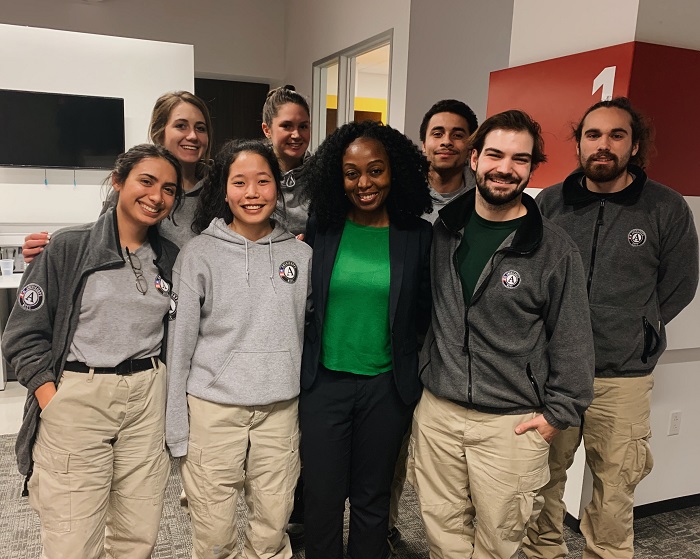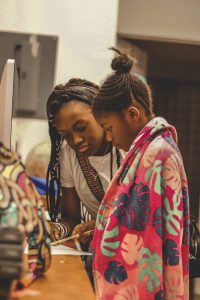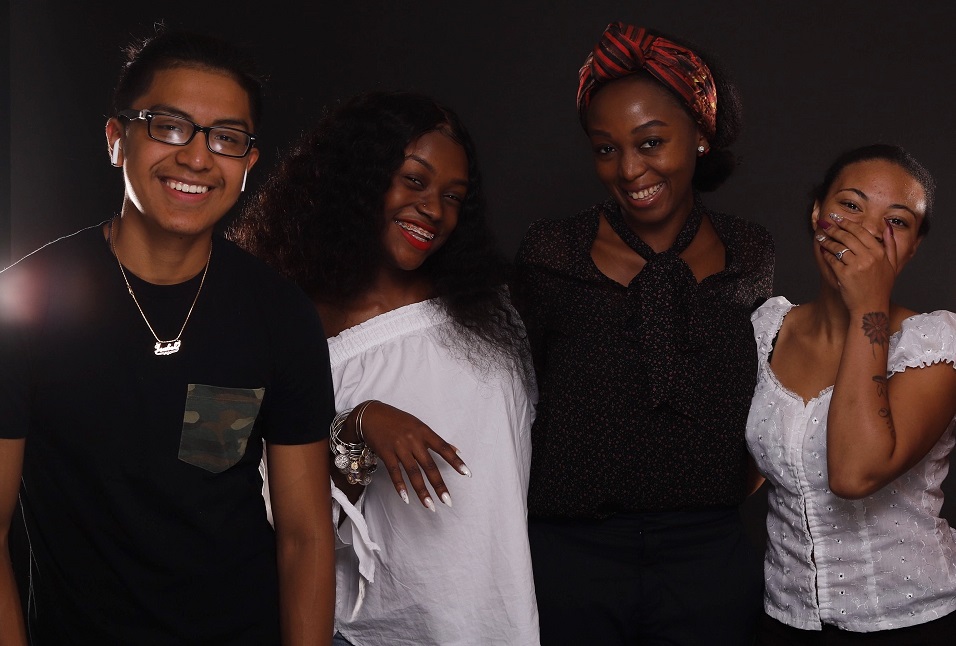
The ALVAINA Foundation: Shifting Education Accountability to the Demand Side
The ALVAINA Foundation is not only inspiring youth to do anything they want in life, but figuring out what they need, right now, to get there. Some of this, in course, involves actually speaking to kids and their parents, to find out what they lack. We believe that parental involvement is a key facet in a child achieving academic success, which of course is a key facet in reaching career goals. Which is why we gave the ALVAINA Foundation one of our small grants.
We spoke with ALVAINA Foundation Founder Rebecca ‘Toyin Doherty to learn all about the work of this organization that is helping youth get ahead:
Kars4Kids: You say you are a “Think-and-do tank.” Tell us some of the things you’ve thought about and what you are doing about them.
Rebecca ‘Toyin Doherty: As a think-and-do-tank, we engage youth in collecting data on schools across the city. We collect data on families’ barriers to accessing a quality schooling experience, their suggested solutions, and successes. Once the data has been analyzed, we schedule conversations with key stakeholders at the school and district levels to ensure that the voices of the community members especially students are heard. We also offer schools technical assistance in the areas of advising, strategy, and implementation.
Kars4Kids: Your flagship program is Future/Leaders of America Institute (FLAI), which your website states offer “lifelong” learning experiences. Can you explain what makes a learning experience “lifelong?”
Rebecca ‘Toyin Doherty: A learning experience is lifelong when it sparks a change or enhances an interest in a program participant to have an ongoing desire in civic participation, leadership, scholarship, or entrepreneurship. An anecdotal example is hearing from FLAI program participants who are now college graduates, employed or in the military say that their first resumé in middle or high school was created through our program. Or another program participant who attended the NAACP Convention and by the end of the week said, “I want to become a lawyer!”
We purposefully design FLAI programs with these outcomes in mind.
Kars4Kids: Tell us about some of the interactive workshops you run.
Rebecca ‘Toyin Doherty: Some of the interactive workshops we run include: resumé writing and college personal statements, dressing for success, networking and etiquette, time management and goal setting.
Kars4Kids: What type of civic engagement can the youth take part in under your auspices?
Rebecca ‘Toyin Doherty: In the past, youth have participated in the NAACP Convention, walked to Capitol Hill to express their concerns about the Voting Rights Act, and engaged in group discussions on issues that affect our communities through our movie and speaker series.
Of late, our efforts have focused heavily on school reform. Our youth are engaged in survey question design, data collection, data analysis, and podcasting.
Kars4Kids: Can you talk a bit about your data collection project? How does it work? What types of data are you seeking?
Rebecca ‘Toyin Doherty: Our data collection project is ongoing to ensure that we hear the voices of the community, and their concerns are timely and relevant. We host focus group discussions, administer surveys, interview stakeholders, and record podcasts. We are collecting school-level data on stakeholders’ barriers to accessing a quality schooling experience, their suggested solutions, and the successes they have observed.
Kars4Kids: You say you are working to shift education accountability to the demand side. Does this mean providing what parents and students want within the public school system? Can you offer some examples of what students and parents want that isn’t currently on offer? What are you doing to solve these “barriers to access?”
Rebecca ‘Toyin Doherty: We are working to shift education accountability to the “demand side” because we believe that increasing family and community participation in school reform would place the supply and demand sides at an equilibrium, as in economic theory. That way, parents and students (and other stakeholders) can get what they need within the public school system and their respective campuses. Two recent examples of what parents and students want that we have observed from our findings are the need for teacher training on cultural competency in specific schools and improving school lunches across the district. We are working on meeting with the respective stakeholders to voice these concerns.
Kars4Kids: What are the resources that marginalized children lack that prevent them from getting ahead?
Rebecca ‘Toyin Doherty: This is a great question. While there are some systemic gaps that we have observed, we also noticed that challenges could vary by school. It could be needing a school uniform bank in some elementary schools and washing machines at the high school. In other instances, it could be housing, the need for a food pantry at the school, or increasing access to transportation at the district level.
Kars4Kids: What is an example of an FLAI activity that complements the school day?
Rebecca ‘Toyin Doherty: An example of an FLAI activity that complements the school day is our speaker series. Each speaker series focuses on a theme that introduces the students to a career path. The series’ also open the floor to discussion on how the speakers navigated through their own socioeconomic barriers to become successful in their careers.

Kars4Kids: Why is it important for our youth to hear speakers and to learn the art of public speaking?
Rebecca ‘Toyin Doherty: Self-advocacy and learning from others’ experiences are healing activities. When we familiarize the youth with the art of public speaking while introducing them to inspiring speakers, they gain the ability to connect and learn from the stories of people who are just like them.
Kars4Kids: What’s next for the ALVAINA Foundation?
Rebecca ‘Toyin Doherty: There are a lot of exciting things to come in the new year for ALVAINA Foundation. We intend to launch our app in schools to increase school, family, and community participation. This app will collect school level data, connect families to free tutors, and assist parents with forming ride-sharing and walking-buddy groups.